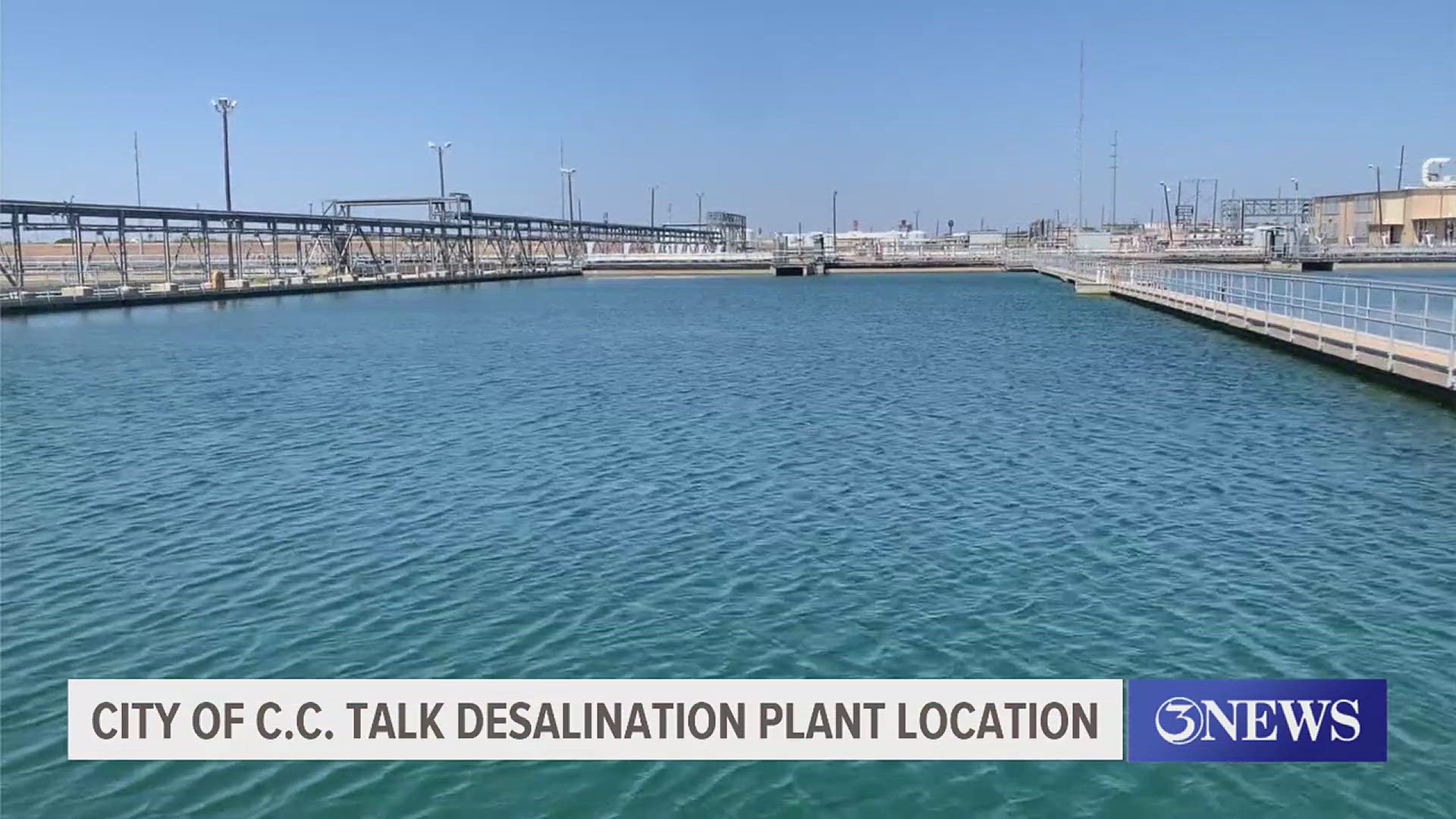CORPUS CHRISTI, Texas — The City of Corpus Christi has chosen Kiewit Infrastructure South Co. as the firm to design and build the city's first desalination plant, the Inner Harbor Seawater Desalination Treatment Plant Project.
“This marks a major, probably one of the most major milestones that confirms with this community that we are trying to secure more water for Corpus Christi and the region we serve," City Manager Peter Zanoni said.
The $700 million plant will be located at the corner of Nueces Bay Boulevard and West Broadway Street and will produce 30 million gallons of water a day.
Kiewit was one of three finalists that the City evaluation committee had to choose from.
"The technical review committee of five members believed based on the technical merits of their written proposal and their interview that Kiewit had the best approach of in terms of one delivering the project on time, staying within budget and three having a facility that would be operational on day one," Zanoni said.
The other two finalists were Spanish infrastructure company Acciona and CDM Smith.
Earlier this week, Zanoni told 3NEWS that leaders have been considering plans to at least double the size of this plant. He said this will be examined as they work on designing the plant.
“The concepts of expanding the plant scalability is something that’s been around for a while, as long as we’ve been talking about this location, what we do know is as we talk about the design and the design contract, certain aspects of this plant should be sized appropriately if we’re serious about having it produce more than 30 million gallons so that we can build it into the plant today," he said.
Now the City will begin the negotiation process with Kiewit. Zanoni said they hope to have a contract by Dec. 3. If they are unable to reach an agreement, the City will move on to the next highest ranking bidder.
Why desal?
The desalination plant is city leader’s attempt to create a drought-proof water supply as Corpus Christi Water’s two main current water sources, the Choke Canyon Reservoir and Lake Corpus Christi, are experiencing record breaking lows.
As the combined lake level percentages drop past different thresholds, the City initiates different stages of water restrictions as is stated in its Drought Contingency Plan. Right now, Corpus Christi is in Stage 2 water restrictions where residents can only water their yards every other week.
How does desal work?
To put it simply, a desalination plant takes seawater and removes salt and other minerals from it. That water is then treated until it is safe for consumption. In our case, the salt and minerals that are removed will be released back into Corpus Christi Bay. The city will also explore using a much longer pipeline to release the water into the Gulf of Mexico instead of the Corpus Christi Bay
The environmental impact of adding this excess salt back into the bay is not entirely known.
Are there any other options besides desal?
As the Choke Canyon Reservoir and Lake Corpus Christi experience record-breaking lows, city leaders are evaluating the alternative water sources.
It's all about options, something at-large councilman Jim Klein said leaders need to look at as the City makes steady forward traction in the seawater desalination project.
"We could look at rainwater capture on a larger scale, we haven't even considered that," he said.
Klein also suggested making upgrades to the Mary Rhodes Pipeline.
"Right now I think it's running at about 55 percent capacity we can increase that from 55 to 60 percent to 65 percent," he said.
District 2 councilmember Sylvia Campos said a solution could come from planting more trees, and looking into existing water sources that can be harvested.
"Can easily build is water storage underground is and at least be able to conserve the water because at Choke Canyon we are losing about 50 percent to evaporation," she said

